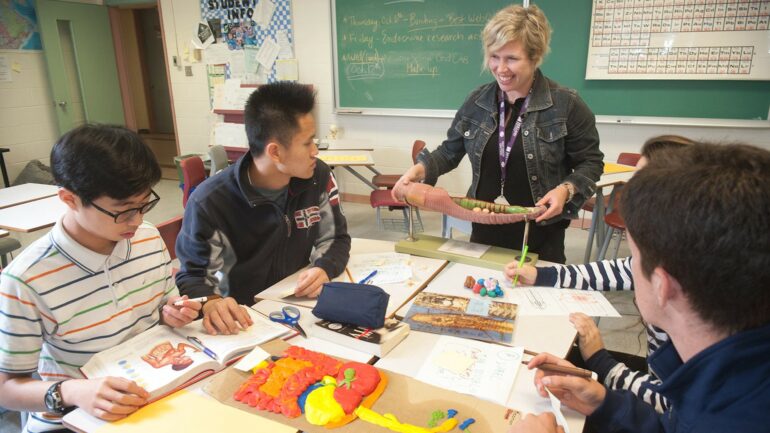The idea that individual people are visual, auditory or kinesthetic learners and learn better if instructed according to these learning styles is one of the most enduring neuroscience myths in education.
There is no proof of the value of learning styles as educational tools. According to experts, believing in learning styles amounts to believing in astrology. But this “neuromyth” keeps going strong.
A 2020 review of teacher surveys revealed that 9 out of 10 educators believe students learn better in their preferred learning style. There has been no decrease in this belief since the approach was debunked as early as 2004, despite efforts by scientists, journalists, popular science magazines, centers for teaching and YouTubers over that period. A cash prize offered since 2004 to whomever can prove the benefits of accounting for learning styles remains unclaimed.
Meanwhile, licensing exam materials for teachers in 29 states and the District of Columbia include information on learning styles. Eighty percent of popular textbooks used in pedagogy courses mention learning styles. What teachers believe can also trickle down to learners, who may falsely attribute any learning challenges to a mismatch between their instructor’s teaching style and their own learning style.
Myth of learning styles is resilient
Without any evidence to support the idea, why do people keep believing in learning styles?
One possibility is that people who have incomplete knowledge about the brain might be more susceptible to these ideas. For instance, someone might learn about distinct brain areas that process visual and auditory information. This knowledge may increase the appeal of models that include distinct visual and aural learning styles. But this limited understanding of how the brain works misses the importance of multisensory brain areas that integrate information across senses.
Another reason that people may stick with the belief about learning styles is that the evidence against the model mostly consists of studies that have failed to find support for it. To some people, this could suggest that enough good studies just haven’t been done. Perhaps they imagine that finding support for the intuitive – but wrong – notion of learning styles simply awaits more sensitive experiments, done in the right context, using the latest flavor of learning styles. Despite scientists’ efforts to improve the reputation of null results and encourage their publication, finding “no effect” may simply not capture attention.
But our recent research results do in fact contradict predictions from learning styles models.
We are psychologists who study individual differences in perception. We do not directly study learning styles, but our work provides evidence against models that split “visual” and “auditory” learners.
Object recognition skills related across senses
A few years ago, we became interested in why some people become visual experts…



